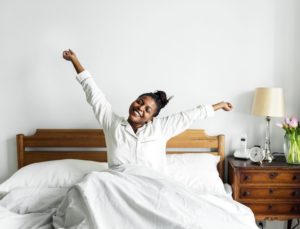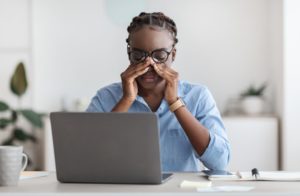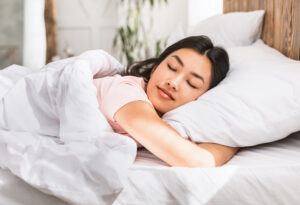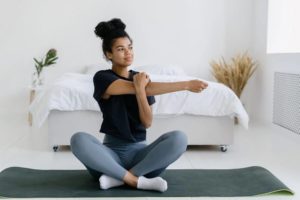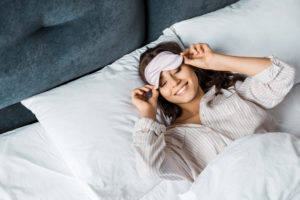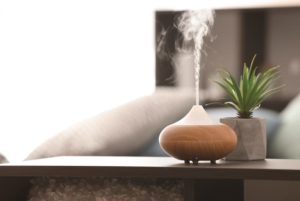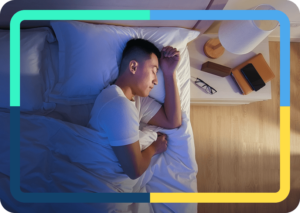Getting Better Sleep While Working Remotely
Remote work has been gaining in popularity for several decades, but the COVID-19 pandemic spurred an even more rapid transition to remote work, when an additional 35% of the population shifted from commuting to working remotely.
Working from home might be here to stay. A survey conducted by Pew Research Center in October 2020 found that among people with a job that could be done from home, more than 50% said they would like to continue teleworking once the pandemic ends. However, teleworking also challenges the boundary between work and personal life, and bringing work into the bedroom may have serious effects on sleep.
Balancing Remote Work and Personal Life
Remote work offers many benefits, including greater flexibility with work hours and less time and money spent commuting – but the transition to a healthy work-life balance may not happen overnight. With some adjustments, you may find you can capitalize on the benefits of both the office and the home while working remotely. Some tips include:
- Find a Replacement for Your Commute: Adopt some strategies to teach your brain when you are working and when you’re relaxing. For example, at the start of the workday, you might make your bed, take a shower, and change into work clothes. At the end of the workday, it may help to put away your computer and work materials.
- Make a Schedule: To avoid letting work take over, set clear guidelines and schedule time into your day for exercise, proper meals, and personal time.
- Keep a Regular Bedtime: If you don’t like the nine-to-five time frame, remote work might present an opportunity to adopt a schedule that feels more natural to you. Just keep in mind that you’ll sleep better if you go to sleep and wake up around the same time every day .
- Set Work Hours: Explain to your family that you may not be available at certain times because you need to work. Similarly, set limits with coworkers about not encroaching on family time, and try your best not to check emails after work hours.
- Take Breaks: Similar to when you’re working in the office, take the occasional mini-break to make a cup of tea, chat with your family, or take a short walk. These breaks can help you stay active and give your eyes a rest from the computer screen.
- Stay Healthy: Eating a healthy diet and exercising regularly are beneficial for your sleep and productivity.
- Practice Self-Care: If you’re feeling lonely or stressed, reach out to your support network and use mindfulness or other relaxation techniques to stay grounded.
If you’re struggling to adapt to remote work, you may find it helps to designate a clear physical distinction between your workspace and your personal space.

Creating Your Home Office
When creating a space to work from home, there are several considerations to take into account:
- Pick a Calm Place: Ideally, you’ll have a workspace that’s comfortable and separated from the rest of the house. If you share a space with other people, consider designating your work area with a curtain or a room divider.
- Factor in Ergonomics: Adjust your chair, desk, and computer monitor to a comfortable height. Consider investing in a keyboard, mouse, and laptop stand to reduce neck strain from looking at your laptop.
- Seek Quiet: Minimize distractions by turning off the television, phone notifications, and other sounds. If you’re bothered by noise from other members of the household, you might concentrate better with headphones or earplugs.
- Keep the Workspace Neat: Reduce stress by clearing clutter and keeping a clean, organized desk.
- Take Advantage of Natural Light: Having a properly lit workplace can help reduce eye strain and keep you alert. If you have access to a window and sunshine, natural light can boost your mood during the day and help you sleep at night.
Using your bedroom as your office is not generally recommended when working from home. Working in the bedroom establishes unhealthy associations between your bed and work , making it difficult to mentally disconnect when you’re trying to fall asleep. Additionally, the bed isn’t exactly an ergonomic workspace.
However, if you live in a studio apartment or a shared household, you may have to work in your bedroom.
Tips for Better Sleep When Working From Your Bedroom
If your bedroom is the only place available for remote work, follow these tips to minimize the impact on your sleep:
- Don’t Work in Bed: The more time you spend in bed awake, the harder it can be for your brain to shut off at night. If you’re short on space, consider reappropriating a shelf from your closet to make a standing desk. Rearranging your bedroom furniture into a work space and a home space may also help you draw a line between the two.
- Take Breaks in Another Room: Treat yourself to a change of scenery by taking your breaks in another room or going for a walk.
- Turn Off Screens One Hour Before Bedtime: Electronic devices with backlit screens give off blue light that interferes with sleep, which is why sleep experts recommend keeping technology out of the bedroom. If you must bring work into the bedroom, try to stop working at least one hour before bed and switch to a non-screen activity, such as reading a book or listening to music.
- Follow a Bedtime Routine: Wind down with a simple bedtime routine, which could include brushing your teeth, changing into pajamas, and relaxing with a book or music.
- Practice Healthy Sleep Hygiene: When your bedroom doubles as your office, it’s especially important to optimize your bedroom for sleep at night. Take steps to create a bedroom environment that is calming and comfortable. This may include lowering the thermostat and minimizing any noise or distractions.
Sleep and working from home don’t have to be incompatible. By implementing some creative work-from-home office ideas, you can maintain healthy sleep hygiene and set yourself up to be more productive.

Still have questions? Ask our community!
Join our Sleep Care Community — a trusted hub of sleep health professionals, product specialists, and people just like you. Whether you need expert sleep advice for your insomnia or you’re searching for the perfect mattress, we’ve got you covered. Get personalized guidance from the experts who know sleep best.
References
6 Sources
-
Brynjolfsson, E., Horton, J. J., Ozimek, A., Rock, D., Sharma, G., & TuYe, H.-Y. (2020, June 15). COVID-19 and Remote Work: An Early Look at US Data. National Bureau of Economic Research (NBER).
https://www.nber.org/papers/w27344 -
Parker, K., Horowitz, J. M., & Minkin, R. (2021). How the Coronavirus Outbreak Has – and Hasn’t – Changed the Way Americans Work. Pew Research Center’s Social & Demographic Trends Project.
https://www.pewresearch.org/social-trends/2020/12/09/how-the-coronavirus-outbreak-has-and-hasnt-changed-the-way-americans-work/ -
Kaur, H., Spurling, B. C., & Bollu, P. C. (2020). Chronic Insomnia. In StatPearls. StatPearls Publishing.
https://pubmed.ncbi.nlm.nih.gov/30252392/ -
Harb, F., Hidalgo, M. P., & Martau, B. (2015). Lack of exposure to natural light in the workspace is associated with physiological, sleep and depressive symptoms. Chronobiology International, 32(3), 368–375.
https://pubmed.ncbi.nlm.nih.gov/25424517/ -
Altena, E., Baglioni, C., Espie, C. A., Ellis, J., Gavriloff, D., Holzinger, B., Schlarb, A., Frase, L., Jernelöv, S., & Riemann, D. (2020). Dealing with sleep problems during home confinement due to the COVID-19 outbreak: Practical recommendations from a task force of the European CBT-I Academy. Journal of Sleep Research, 29(4), e13052.
https://pubmed.ncbi.nlm.nih.gov/32246787/ -
Bonmati-Carrion, M. A., Arguelles-Prieto, R., Martinez-Madrid, M. J., Reiter, R., Hardeland, R., Rol, M. A., & Madrid, J. A. (2014). Protecting the melatonin rhythm through circadian healthy light exposure. International Journal of Molecular Sciences, 15(12), 23448–23500.
https://pubmed.ncbi.nlm.nih.gov/25526564/
















